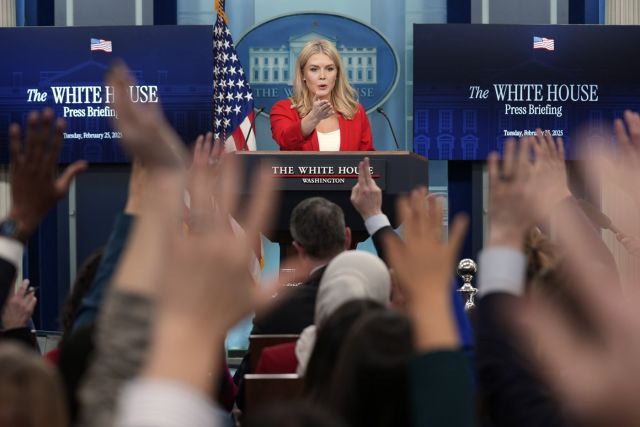Move sparks First Amendment concerns as press access rules shift
The White House announced Tuesday that it will determine which news outlets receive regular access to cover President Donald Trump, marking a significant departure from long-standing traditions that allowed an independently selected press pool to report on the presidency.
Press Secretary Karoline Leavitt framed the decision as a modernization of media access, arguing that traditional news outlets should no longer have a “monopoly” on covering the president. However, media experts warn that the change raises serious First Amendment concerns, as it gives the White House direct control over which journalists can cover the administration up close.
“A select group of D.C.-based journalists should no longer have a monopoly of press access at the White House,” Leavitt said during a press briefing. “The White House press team, in this administration, will determine who gets to enjoy the very privileged and limited access in spaces such as Air Force One and the Oval Office.”
The new policy will rotate traditional media outlets out of the White House press pool and bring in streaming platforms and alternative news sources. However, the specifics of how journalists will be selected remain unclear.
The decision has drawn sharp criticism from press freedom advocates, who argue that allowing the president to choose his own press corps undermines the media’s ability to hold the government accountable.
“This move tears at the independence of a free press in the United States. It suggests the government will choose the journalists who cover the president,” said Eugene Daniels, president of the White House Correspondents’ Association.
Jon Marshall, a Northwestern University media historian, called the change a “dangerous move for democracy.”
“It means the president can pick and choose who covers the executive branch, ignoring the fact that it is the American people who through their taxes pay for the running of the White House, the president’s travels, and the press secretary’s salary,” he said.
The Reporters Committee for Freedom of the Press also condemned the policy, calling it a “drastic change in how the public obtains information about its government.”
The announcement comes amid a legal battle between the White House and The Associated Press (AP). The AP sued the Trump administration after being barred from multiple presidential events, arguing that the restrictions violate the First Amendment.
The White House’s dispute with the AP stems from the news organization’s refusal to use Trump’s preferred term, “Gulf of America,” instead of the widely recognized “Gulf of Mexico.” Trump issued an order requiring federal agencies to adopt the new name, but AP maintained that its style guide would continue using “Gulf of Mexico” while noting the administration’s decision.
On Monday, U.S. District Judge Trevor N. McFadden declined to immediately restore AP’s access, but he urged the White House to reconsider its decision, stating that case law on the issue “is uniformly unhelpful to the White House.” A follow-up hearing is scheduled for late March.
The AP has acknowledged Trump’s authority to rename certain U.S. landmarks, such as his recent executive order restoring Mount McKinley’s name from Denali, but it has defended its editorial independence in reporting on such changes.
The Trump administration’s push to reshape who covers the presidency could set a precedent for future White House press policies, further straining an already contentious relationship with mainstream media.
While the administration argues that the move expands access to new media, critics warn that it may grant the president excessive control over press coverage, limiting independent scrutiny of his administration.
With legal battles looming and media organizations pushing back, the fight over press freedom in the Trump White House is far from over.

